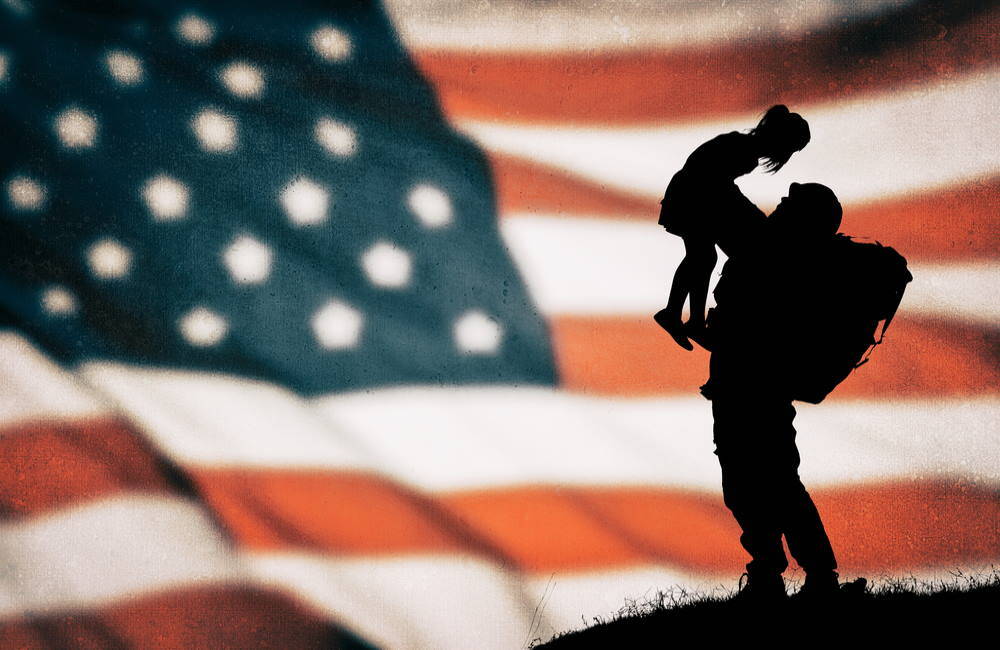Celebrated every Nov. 11, Veterans Day officially marks the date of the ceasefire in 1918 that ended fighting in the “war to end all wars,” World War I. The official end of the war came with the signing of the Treaty of Versailles in June 1919, but the ceasefire on the 11th hour of the 11th day of the 11th month remains the day celebrated.
Since its creation, Veterans Day has grown into one of the major holidays of the year. It offers people the chance to thank a veteran for sacrificing years of their life in defense of liberty. The celebration often includes parades and other celebrations.
6 Knife Traditions You’ve Never Heard of
The Origins of Veterans Day
At 11 a.m. on Nov. 11, 1918, soldiers of the Allied nations and Germany stopped fighting. Leaders from the countries involved had signed a temporary halt to hostilities, called an armistice. It held until the signing of the Treaty of Versailles made the peace official seven months later.
The first Veterans Day, then called Armistice Day, went into effect in November 1919 at the direction of President Woodrow Wilson, according to the Veterans Administration. The original idea was to stop all commerce on Nov. 11 at 11 a.m., and then have a day of parades and public meetings. It became a legal federal holiday by act of Congress on May 13, 1938.
After World War II and the Korean War, Congress – at the urging of veterans’ service organizations – changed the name to Veterans Day to honor American veterans of all wars.
The Confusion Between Veterans Day and Memorial Day
Many people remain confused about the different holidays built around honoring those who currently serve and have served in the Armed Forces. Veterans Day in the United States is not about honoring those who died serving their country – that’s Memorial Day. Veterans Day is about celebrating the lives of those who survived.
Veteran Andrew Bustamante wrote that “no veteran honors their time in service as much as they honor the life they were privileged to live after serving. The spouses they married or returned to. The children they held and kissed. The hope for a future they helped to secure.”
He wrote that for those soldiers at 11 a.m. on Nov. 11, 1918, the armistice ended years of misery. World War I soldiers did not only experience brutal trench warfare, but also had to combat hunger and the cold while often wearing wet clothes for weeks on end. The armistice ended all that, and it also meant they no longer had to fear death and had the freedom to go home and live their lives.
Thanking a Veteran
The Department of Defense notes that “it can be a little annoying to all of the living veterans out there” when people misunderstand what Veterans Day is about. The intention of the holiday is to thank living veterans for the sacrifice they have made for their country.
Bustamante writes that one of the best ways to thank a veteran is not to say, “Thank you for your service,” but rather to say, “I’m so happy to celebrate life with you today.” Why? Because, as he notes, “We know that life today was never guaranteed.”
The VA offers insight into this issue as well. Many soldiers find “thank you for your service” somewhat awkward, while others do not.
One way to say thank you that is universally appreciated is to perform an act of kindness for a soldier. That can include writing a check to organizations such as Wounded Warrior, donating frequent flyer miles to veterans’ organizations or, if you’re a hiring manager, picking a veteran to hire for a job at your company.
The Holiday is Celebrated in Other Countries
World War I involved many countries. Many lost more lives than the United States did in the war. In all, a staggering number of people – 16 million – died. Another 21 million were wounded. At one point, the death rate reached about 6,000 per day.
For that reason, other countries also have a holiday on Nov. 11. For example, in France it is still known as Armistice Day. In the United Kingdom, Canada and Australia, it is known as Remembrance Day.
The Canadian holiday is much like the one in the U.S., although citizens there also have a tradition of wearing red poppy flowers to honor their war dead. In the U.K. and Australia, the focus is more on honoring those who lost their lives.







Leave A Comment